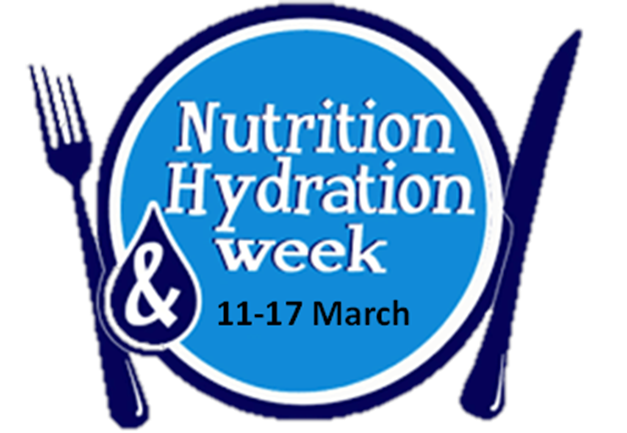The team will be out during the week across the hospital sites promoting the importance of patients receiving the right nutrition during and after their hospital stay.
To celebrate the week they will be taking part in the global Nutrition and Hydration tea party, an event organised nationally to get organisations involved in getting the messages across to staff and patients about the importance of nutrition and hydration within their work area. WHH will be hosting their Afternoon Tea on Thursday 14th March, which will be held across all the wards on both hospital sites.
Sid Bhattacharyya, Dietitian explains,
“This is all about promoting good nutrition and hydration across all wards as these are key parts of good clinical care, aiding recovery and patients’ ability to fight off infections.
“Being well-fed and hydrated also helps patients to get better and go home sooner, and the majority of patients do want to go home as soon as they can to their families.”
Signs of dehydration include having a dry mouth or lips, thirst, tiredness, headache, dry and loose skin and dark-coloured or strong smelling urine.
Good levels of hydration in older people can help prevent or aid the treatment of pressure ulcers, low blood pressure, urinary infections, constipation, confusion and falls.
The average person should aim to drink at least 1.6 – 2litres of fluid per day to stay healthy (2.8 – 3.5 pints, or around eight glasses.) Fresh, cool water is the best drink for staying hydrated, as well as low calorie squash, tea and coffee. Avoid large amounts of caffeine and alcohol, as these can make you pass more urine and increase your risk of dehydration.
What does the Nutrition and Dietetic Team Do? The team of dietitians, dietetic assistants and clerical staff work together with the multidisciplinary team to treat adults and children within various locations. These include hospitals, GP practices, outpatient clinics, group education sessions and home visits. Dietitians are qualified and registered health professionals that help to diagnose and treat dietary and nutritional problems at an individual and wider public health level.
They use only the most up-to-date, evidenced based research to advise our patients on appropriate lifestyle and food choices. There are several reasons why someone may need to see a dietitian. Some of these can include: diabetes, malnutrition, IBS syndrome, kidney failure and weight reduction. The team work closely with other teams, like the Speech and Language Therapists to care for the patients who might experience conditions like dysphagia, i.e. swallowing difficulties.
When the team see their patients, they will carry out initial assessments. This involves looking at the patient’s clinical condition, symptoms, blood results, social circumstances etc in order to make the best dietary plan for them in accordance with their specific needs.



